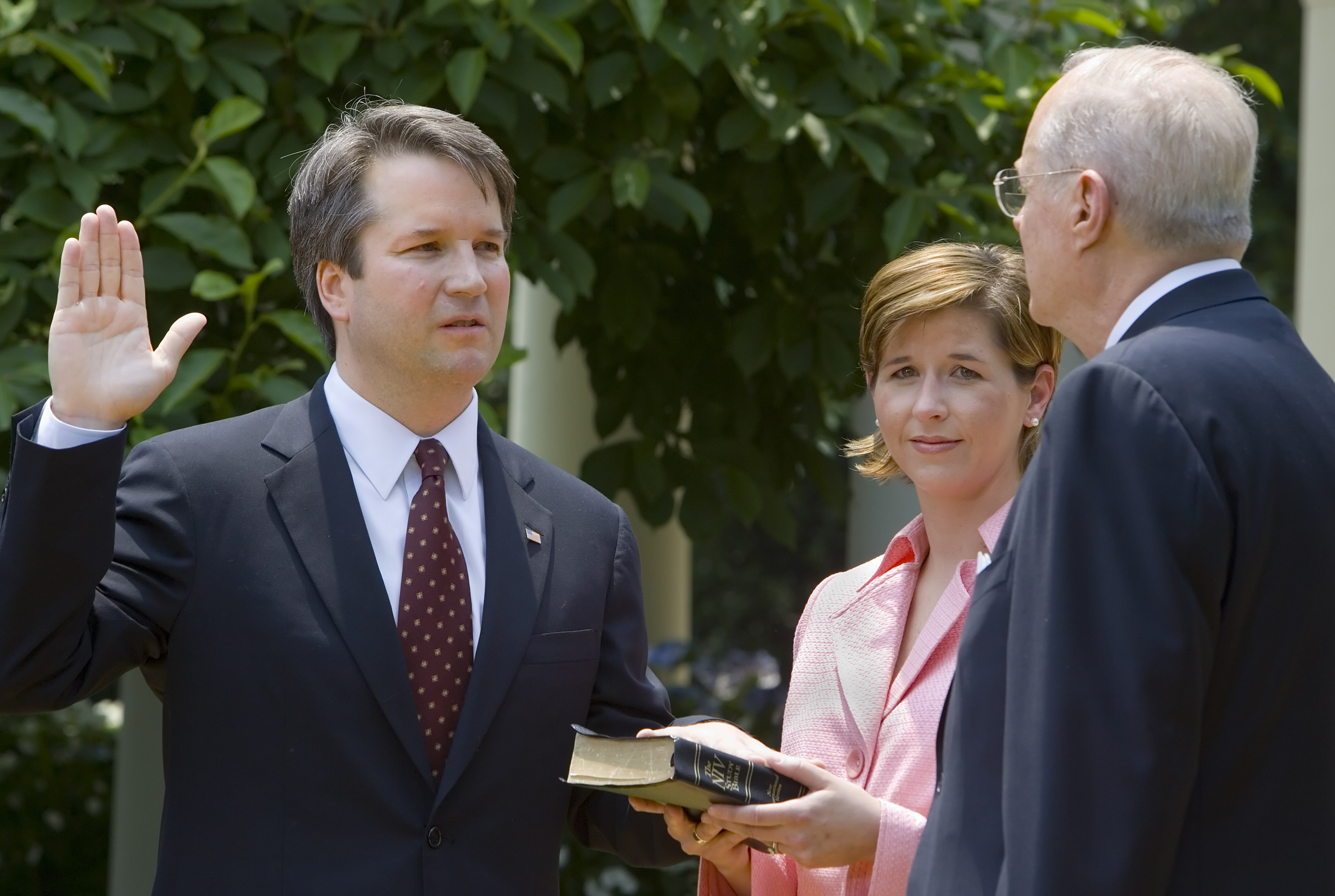US awaits Trump’s Supreme Court nominee
Photo: () | ©AFP
Washington (AFP) – President Donald Trump will announce his US Supreme Court pick Monday, an intensely anticipated decision likely to swing the bench rightward for years to come and which has Washington readying for an explosive confirmation battle.
In an undeniable bid to maximize exposure for his nominee to replace retiring Justice Anthony Kennedy, long a swing vote on the nine-member court, Trump said he would unveil his choice at a 9:00 pm (0100 GMT) prime time televised appearance at the White House.
Trump’s pick — his second opportunity in 18 months to fill a Supreme Court vacancy — will be immensely consequential, impacting many aspects of American life.
The president said Thursday he had narrowed his options to four or fewer “outstanding” candidates from his prospective list of 25, adding that he will finalize his decision Sunday ahead of the announcement.
“I think of the four people, I have it down to three or two,” he said. “Honestly I could pick any of the 25 and they would be terrific.”
Democrats have sounded the alarm that Trump could shift the ideological balance of the court and therefore place women’s reproductive rights, health care and gay rights at risk.
Trump indeed said during the 2016 campaign that he would put “pro-life justices on the court,” a declaration that thrilled members of his grass roots base who are keen to restrict abortion.
Polls show that most Americans support abortion rights.
Top Senate Democrat Chuck Schumer called Trump this week to warn it would be “cataclysmic” for national unity if he nominated someone hostile to Roe v Wade, the landmark 1973 decision that protects women’s rights to abortion, according to a person familiar with the discussion.
Judicial experts seem to concur with reports that Trump’s top tier now has three contenders: federal judges Brett Kavanaugh, Raymond Kethledge and Amy Coney Barrett.
Barrett, 46, is a rising judicial star and a favorite among social conservatives. As a woman and mother, she could upend the narrative pushed by Democrats that Trump’s pick would erode women’s rights.
But Trump appointed Barrett to the Court of Appeals for the 7th Circuit just nine months ago, and he may well keep her in reserve, gaining valuable experience as an appellate judge, in the event of a future Supreme Court opening.
Trump has been focusing on Kavanaugh and Kethledge, who have the “inside track,” a person close to the president told the Washington Post.
Kavanaugh, 53, began his career as a clerk to Kennedy, and as a judge on the US Court of Appeals in Washington he has heard cases and written opinions on some of the nation’s most sensitive issues.
He recently voiced disagreement with a court decision allowing a teenage unauthorized immigrant to get an abortion.
Kethledge, 51, currently sits on the Sixth Circuit appeals court. He is seen as supporting originalism, an interpretation of the Constitution along the lines of its meaning at the time of enactment.
– No ‘extremist’ –
As the nation readied for the announcement, Trump acknowledged the weight of his coming decision.
“Outside of war and peace, of course, the most important decision you make is the selection of a Supreme Court judge,” he said recently.
In his weekly address Friday, he signaled he was seeking a neutral jurist who would “faithfully” interpret the US Constitution.
“We reject judicial activism and policy-making from the bench,” Trump said.
Trump’s nominee is unlikely to directly reveal his or her position on Roe v Wade during the upcoming Senate confirmation hearing.
But Trump’s picks already have been vetted by the Federalist Society, a conservative legal group whose mission, Schumer said, “has been to repeal Roe v Wade and strike at the heart of our health care law.”
With the Senate’s Republican leadership saying it aims to complete the confirmation process before November’s mid-term elections, Democrats were nearing panic mode.
Kennedy’s replacement “could have a bigger effect on Americans daily lives than any justice in our lifetime,” Senator Dianne Feinstein tweeted Friday.
“Pres. Trump owes it to the American people to nominate a moderate, consensus candidate, not an extremist.”
Democrats cannot block a nominee without Republican help. While Trump’s party’s 51-49 Senate majority has been made even slimmer because Senator John McCain is absent battling brain cancer, Republicans need only a simple majority to confirm court nominees.
The party’s two most moderate senators, Susan Collins and Lisa Murkowski, are pro-choice women who have expressed concern about the possible dismantling of reproductive rights, and they face intense lobbying from liberal groups.
Even if Collins and Murkowski break ranks, there are three Democrats who face difficult re-election battles this year in states that strongly supported Trump, and who could potentially support his nominee.
All three of them voted for Neil Gorsuch, Trump’s first Supreme Court pick who was confirmed last year.
Disclaimer: This story has not been edited by Siliconeer and is published from a syndicated feed. Siliconeer does not assume any liability for the above story. Validity of the above story is for 7 Days from original date of publishing. Content copyright AFP.


